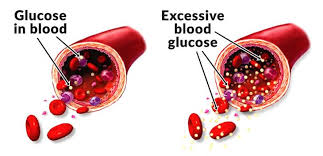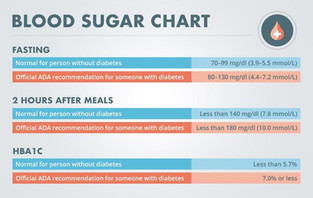Controlling Blood Sugar Naturally
- Juic'd
- Feb 9, 2021
- 3 min read
Blood Sugar is a BIG topic of discussion today. If there's anyone else that is borderline diabetic (like my father), and does NOT want to turn to insulin shots please comment below what you do in your daily routine that can help others that are battling this demon. Let's take a look at some real numbers and details surrounding diabetes and prediabetes as well as some healthy alternatives that can help control blood sugar flareups without resorting to expensive medicines.
High blood sugar (hyperglycemia) is associated with diabetes. High blood sugar occurs when your body doesn’t make enough or effectively use insulin, a hormone that regulates blood glucose and helps it enter your cells for energy. Close to 50% of all U.S. adults have diabetes or prediabetes. The Centers for Disease Control and Prevention (CDC) reports that 13% of U.S. adults live with diabetes, and 34.5% have prediabetes.
1: Maintain a Lower Carb Intake
The ADA (American Diabetes Association) recommends being aware of carb intake and knowing how many carbs your individual body needs per day. This varies for men/women as well as age factor and how severe your particular case may be. Diets lower in carbs tend to be rather beneficial for prediabetics/diabetics. When you eat too many carbs or have insulin-function problems, this process fails, and blood glucose levels can rise. Your body breaks carbs down into sugars (mostly glucose), and then insulin helps your body use and store sugar for energy.
2: Exercise Regularly
Daily exercise can help you achieve and maintain a moderate weight as well as increase insulin sensitivity. Monitor your insulin levels regularly to see what activities work best for your body. It can be fun to try different exercises and log your reduced insulin levels. Need an activity idea? Try speed walking, running, weight lifting, biking, rowing, swimming, hiking or skiing. Increased insulin sensitivity means your cells are better able to use the available sugar in your bloodstream. Exercise helps muscles utilize blood sugar for muscle contraction and energy. Elevate your heart rate for a minimum of 15-20 minutes each day to get ample results.
3: Increase Fiber Intake
A high fiber diet can help better manage type 1 diabetes by improving the body’s ability to regulate blood sugar and reducing blood sugar lows. There are two types of fiber (soluble and insoluble). Fiber slows carb digestion and sugar absorption. For these reasons, it promotes a more gradual rise in blood sugar levels. Some great examples of foods high in fiber are RAW fruits and veggies, legumes and whole grains (as long as you aren't also gluten intolerant (like myself).
4: Choose Foods with a Low/Moderate Glycemic Index
Eating low-glycemic-index foods has been shown to reduce blood sugar levels in those with diabetes. Items like non-starchy vegetables, beans, lentils, oats, barley, yogurt (if you can stomach dairy), legumes, bulger
, wheat pasta (for those that can eat gluten).Be sure to choose foods with a low glycemic index and monitor your carb intake overall.
5: Manage Stress Levels
One study showed that exercise, relaxation, and meditation significantly reduced stress and lowered blood sugar levels for students. Hormones such as glucagon and cortisol are secreted during stress. These hormones cause blood sugar levels to increase. Exercises and relaxation methods like yoga and mindfulness-based stress reduction may also help correct insulin secretion problems in chronic diabetes. Make sure you take time to unwind and destress and incorporate some quite "me time".
6: Implement Portion Control
Weight management promotes healthy blood sugar and has been shown to reduce the risk of developing type 2 diabetes. Read food labels, use a smaller plate or a sectioned plate, avoiding buffet style or all you can eat restaurants, keeping a food log/journal and eating slowly along with drinking water throughout your meal will help reduce the "need" to eat more in order to fill full.
Always remember to speak with your health care provider before modifying your lifestyle. This is essential when you have weight or blood sugar management problems.
We cannot make tomorrow better until we embrace today. If you incorporate any of these items into your lifestyle, I'd love to hear how they help you (even if its more than in blood sugar).
**Images and some information courtesy of heart.org & diabetesselfmanagement.com**










Comments